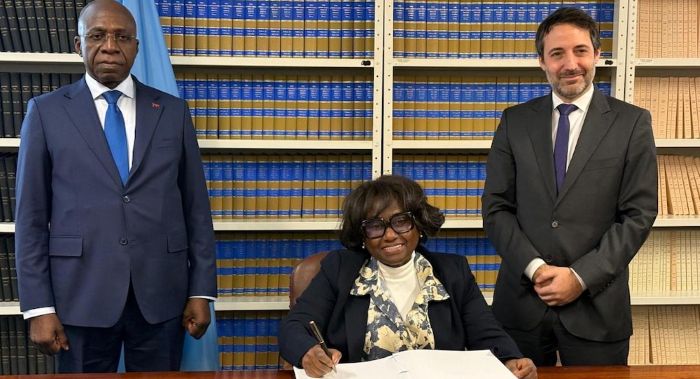(3 Minutes Read)
Angola has made a significant advancement in marine conservation by signing the High Seas Treaty, a pivotal international agreement focused on protecting and sustainably managing marine biodiversity in areas outside national jurisdiction. The treaty was signed by Angola’s Minister of Fisheries and Marine Resources, Carmen do Sacramento, at the United Nations Headquarters in New York.
As a marine biologist, Sacramento noted that ratifying the treaty will improve knowledge, governance, and economic development. She emphasised the vast economic potential of the oceans, particularly given Angola’s 1,850 km coastline, which presents considerable opportunities in the blue economy.
The Ministry plans to focus on sustainable coastal planning and management to prevent governance overlaps, as well as mapping marine activities to ensure responsible resource use. Conservation efforts will extend beyond the 200-nautical-mile exclusive economic zone (EEZ).
The High Seas Treaty, recognized as a historic achievement by the UN, aims to tackle environmental challenges in areas outside national control, encourage sustainable marine resource use, and foster global cooperation in ocean governance. Covering two-thirds of the world’s oceans, the treaty establishes a framework for managing marine biodiversity, underscoring Angola’s commitment to conservation and responsible ocean use.
Minister Carmen do Sacramento highlighted the role of mariculture (marine aquaculture) in enhancing Angola’s food security and economic development. By curbing harmful fishing practices and optimising the value chain, Angola aims to boost national food production and increase seafood exports to elevate GDP.
Read Also;
https://trendsnafrica.com/angola-sets-up-working-group-to-address-rising-pollution/
By joining the High Seas Treaty, Angola positions itself as a regional leader in marine conservation and sustainable fisheries, utilising ocean resources for economic diversification and environmental stewardship. This milestone signifies a new phase in Angola’s blue economy strategy, ensuring its marine resources contribute to both national and global sustainability objectives.





